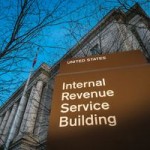IRS Says Bitcoin Counts as Property for Tax Purposes

The Internal Revenue Service issued a notice saying that Bitcoin and other virtual currencies should be treated as property for federal tax purposes and the general rules for property transactions should apply.
The notice provides answers to frequently asked questions on virtual currencies such as Bitcoin, which have been gaining adherents in recent years. However, Bitcoin has seen its image tarnished in recent months with the collapse of popular Bitcoin exchanges like Mt. Gosk and Vicurex, due to hacking attacks that caused hundreds of millions of dollars to disappear, and the shutdown of the site Silk Road and the arrest of its founder on money laundering and murder conspiracy charges.
The FAQs issued by the IRS indicate the agency intends to treat the virtual currency as taxable. The guidance provides basic information on the U.S. federal tax implications of transactions in, or transactions that use, virtual currency.
In some environments, virtual currency operates like “real” currency, the IRS noted, such as the coin and paper money of the United States or of any other country that is designated as legal tender, circulates, and is customarily used and accepted as a medium of exchange in the country of issuance. However, the IRS pointed out, virtual currencies like Bitcoin do not enjoy legal tender status in any jurisdiction. Indeed, Bitcoin has often been used to facilitate criminal enterprises such as drug deals and prostitution.
The notice provides that virtual currency is treated as property for U.S. federal tax purposes. General tax principles that apply to property transactions apply to transactions using virtual currency. Among other things, this means that wages paid to employees using virtual currency are taxable to the employee, must be reported by an employer on a Form W-2, and are subject to federal income tax withholding and payroll taxes.
Payments using virtual currency made to independent contractors and other service providers are taxable and self-employment tax rules generally apply, according to the IRS. Normally, payers must issue Form 1099. The character of gain or loss from the sale or exchange of virtual currency depends on whether the virtual currency is a capital asset in the hands of the taxpayer. A payment made using virtual currency is subject to information reporting to the same extent as any other payment made in property.
Further details, including a set of 16 questions and answers, are in Notice 2014-21, posted Tuesday on IRS.gov.
(By MICHAEL COHN)
Source: accountingtoday





























